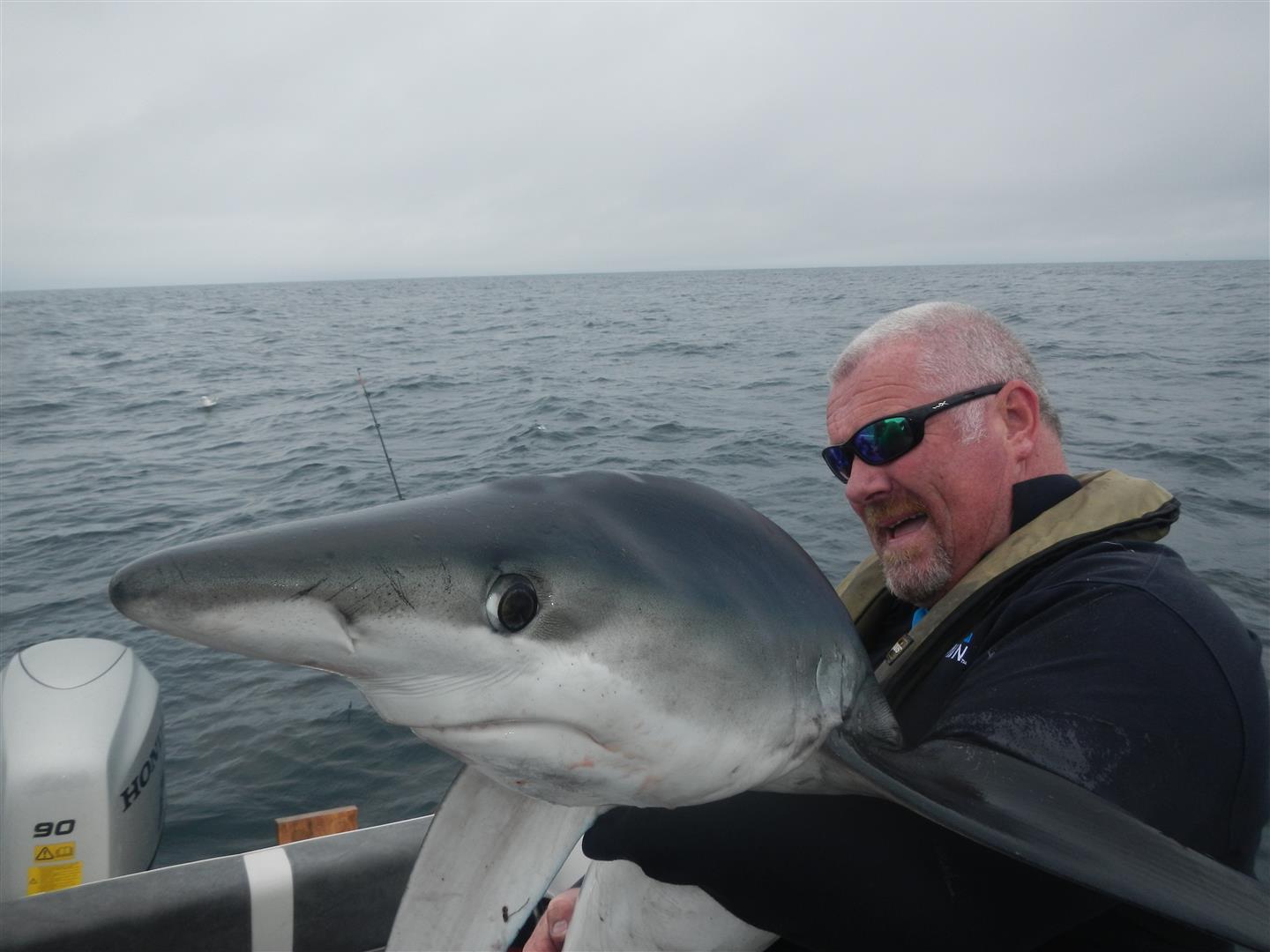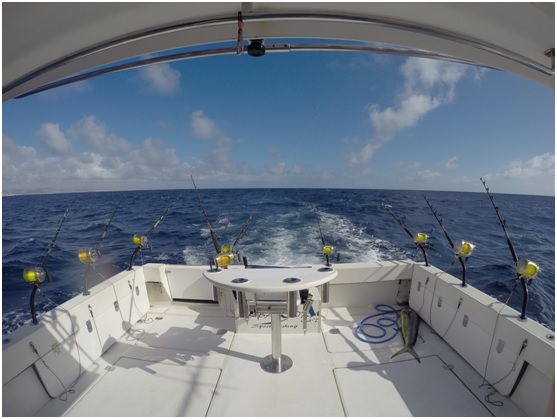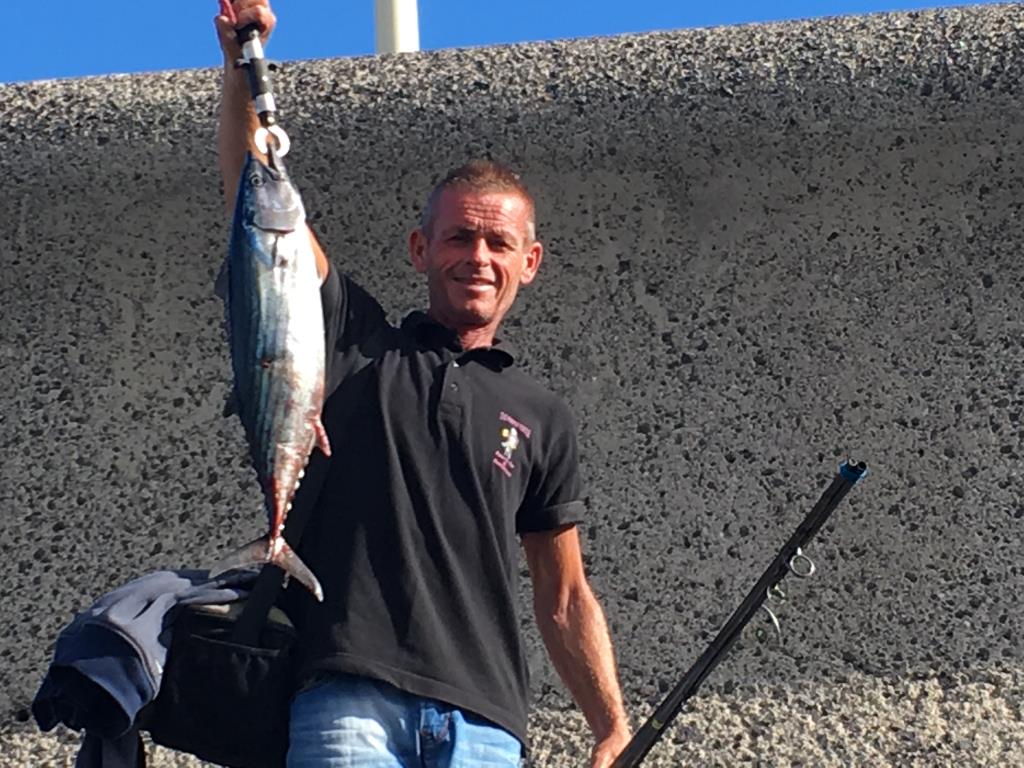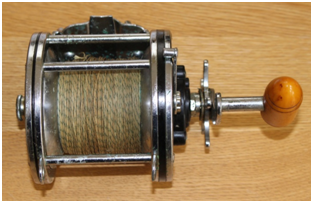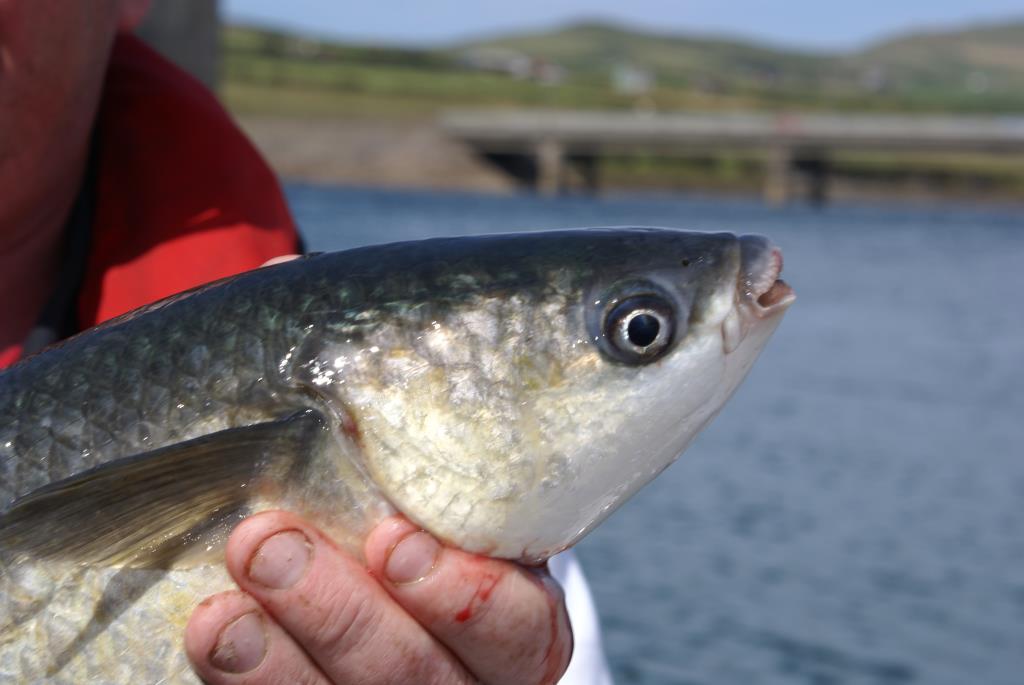* Blue Shark Success

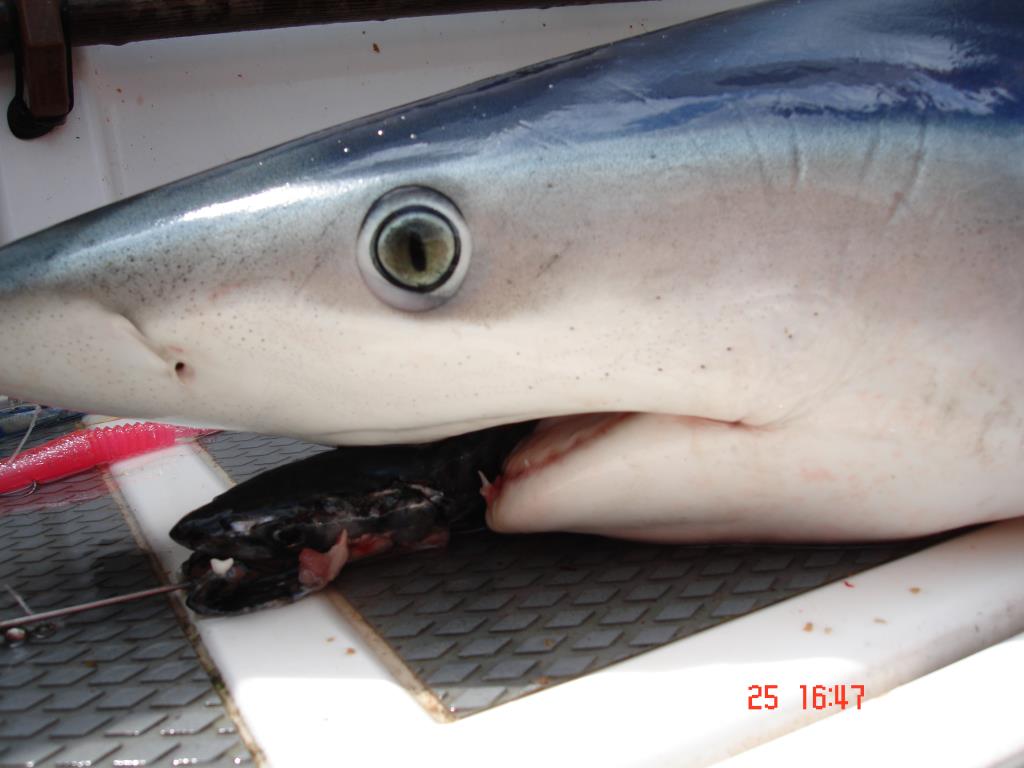
As predictable as the seasons Blue Shark migrate…
As predictable as the seasons blue sharks migrate with rising water temperatures into to the waters around Ireland and the U.K. In recent years shark fishing seems to have grown in popularity especially since more dinghy anglers realise that sharks are a worthwhile target from a small boat. Without doubt social media has made it more popular for people to chase a shark during the summer months. The sight of grinning satisfied anglers holding pristine sharks tends to get the juices flowing for many!
From the outset is is important for all boat anglers to realise the easiest (and probably safest) way to get shark fishing is to take a reputable charter skipper. The better skippers will provide a superb days entertainment for their punters. The slick operators will have a stock of chum to be used on the day although most will top up with some rubby dubby on the day as well.
We tend to get a bit blasé about sharks. The fact of the matter is that they are potentially very dangerous animals. Apart from the obvious dentures, a big shark thrashing about on deck or squirming while being held has the potential to cause grevious harm to a unwary angler. There have been many fellows seriously injured though you would not hear of many. Shark teeth are extremely sharp and can inflict a serious gash. Do not even consider targeting shark from your small boat unless you are prepared to take the work, and it is work, seriously.
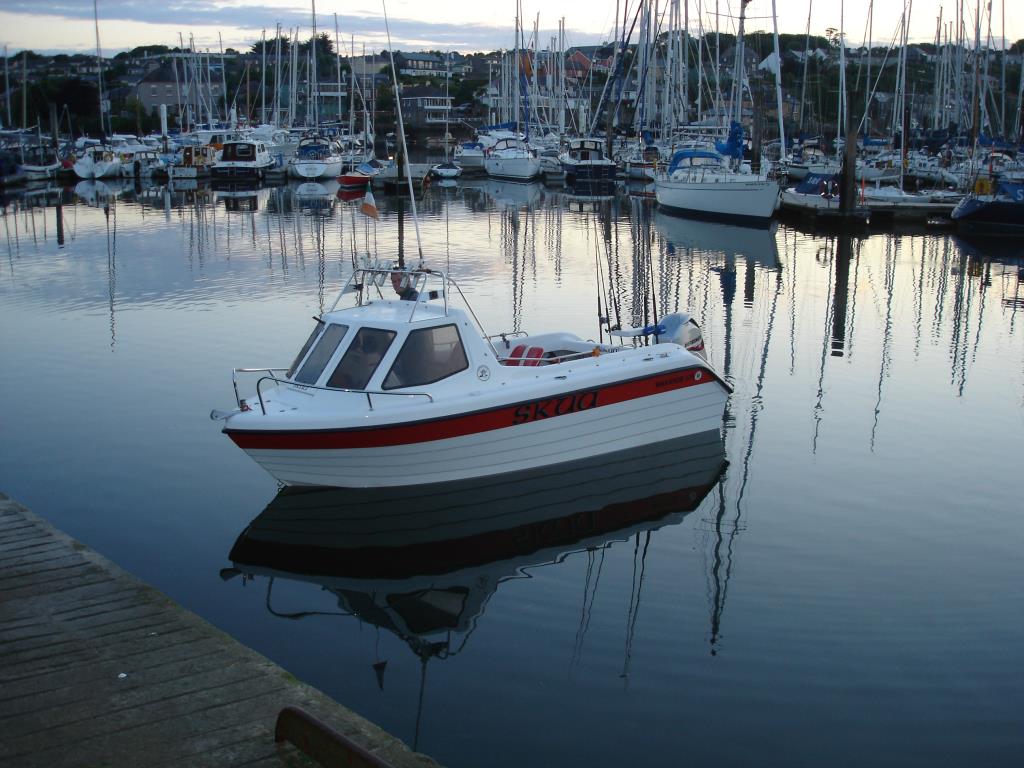
TopFisher has many articles about shark fishing. You will notice that the predominant species portrayed are Blue Sharks. Reasoning behind that is quite simple – blue sharks are the easiest to catch! Certainly along the south coast of Ireland if you introduce some chum into the water there is a good chance you will attract sharks. It just so happens that there are more blue sharks around than any others. Of course there are other sharks about – porbeagles, threshers and makos are all a possible capture. Six Gilled sharks are about too but are a more specialised target. The fact remains though the chances of catching a shark in the summer is high, the chances of it being a blue shark are high due to the dominance of the species. It would be fair to say that for most shark fishing off the south coast any other species of shark will be a bonus.
There is something great about the day of a shark hunt. There is a certain feeling that only sharks can evoke. Is it nervousness? Is it adrenaline? There is something that gets the juices flowing. Nowadays I tend to carry my chum with me in the form of a frozen block. This eliminates the necessity of catching a multitude of mackerel for chum. All you need is some mackerel for bait. You can uses any fish for bait I have seen big sharks take whiting ahead of mackerel. Once I have some shark bait I trend to divide my day in two. I will spend part of the day lure fishing or scratching with bait and the rest of the day will be spent attempting to catch some sharks. Half the day is enough. Often a couple of hours is enough to get your fill of blue sharks.
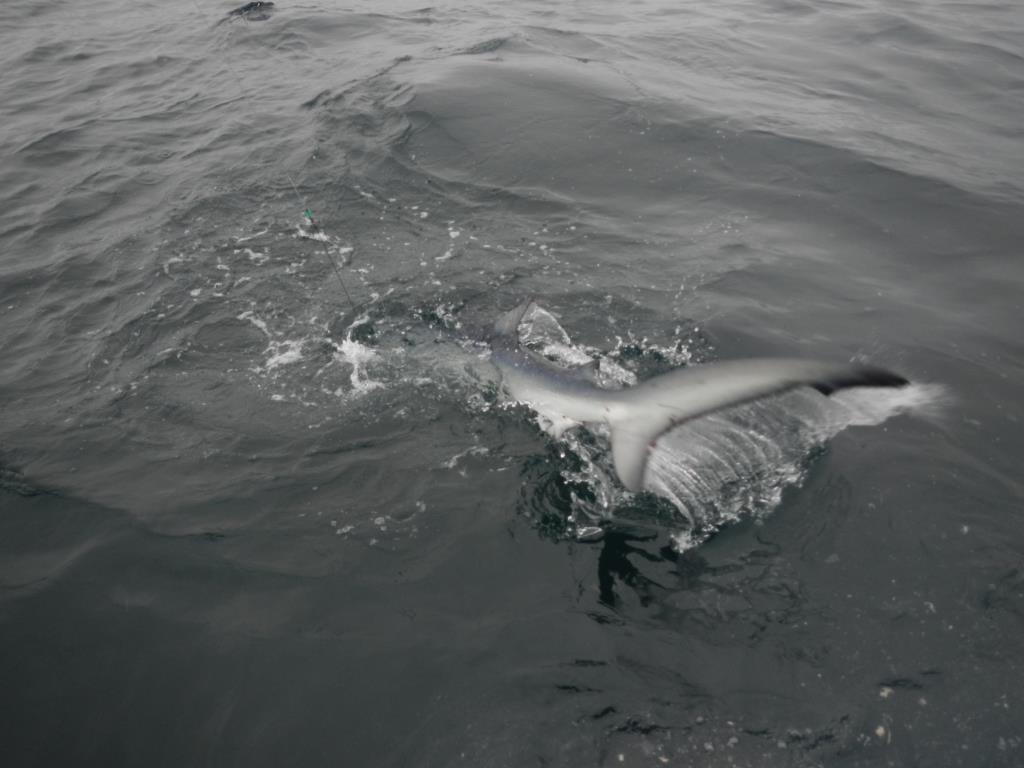
Finding sharks is the easy bit. The chum will do that for you. Hooking the shark is easy. The bait and a decent quick strike will do that for you. Fighting the shark successfully to the boat is not so easy and will depend on a few factors:
The business end: If you do not have a decent trace you stand to loose your shark. A wire biting leader is important as is a decent rubbing leader. You can make your trace all wire but I like to use a mono rubbing leader. Think of it – you stand a possibility of catching a powerful fish over 100lbs. A fish of this size will expose any weakness in your gear whether it be a poor hook pattern or a poorly crimped sleeve.
You reel is important. A decent drag is required. I will usually remove few metres of mainline off my reel before a trip. This is to eliminate any frayed line that could be nicked and ultimately break off when the pressure comes on. I like to use braid when fishing for sharks. I like the feeling of being in touch with the fish. The reel needs to be strong enough to put up with the the fight and it needs to have a very smooth drag to combat the strong runs of a hooked blue shark or even bigger. Your rod need not be a poker, in fact a rod with a nice action is a help. I like to use a decent 12-20 rod.
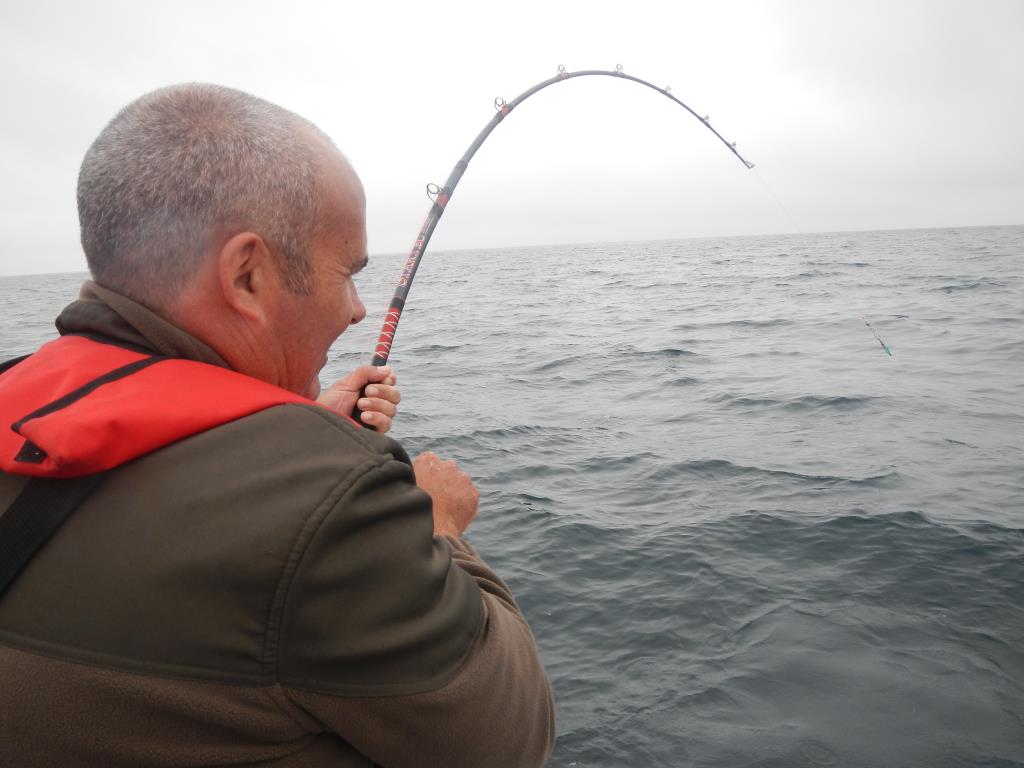
I am not a fan of taking on fish on gear that is too light for purpose. I am all for sport and fun but playing fish for a long time because you do not have the correctly weighted tackle simply kills fish or leaves sharks trailing broken traces. It is no boast to under gun a shark. Of course the average sized shark is going to be around 60lbs. As such tackle that you tackle tope with would work fine. But what happens when you hook into the 200lb blue? Balanced tackle is the name of the game and a fair fight is the result.
The waiting game that is shark fishing can be fun or a bore depending on what you do. If conditions and location allow it can be nice to do some bottom fishing on the drift. If you spot any action in the chum trail you can set up for garfish. The biggest garfish each year are usually caught by shark anglers. If you have been working hard catching and making chum sometimes that wait for a bite can be lunch time!
You are setting out a trail of chum in the hope that a shark will follow the trail to the source of all those lovely bits and pieces of fish and blood and oil. You can be very lucky and have a hook up in minutes. It is more likely that your will have to wait for some time before the sharks find their way to your bait. There are times, not often in season, that the sharks do not show. I am starting to get nervous after 60 minutes of chum soak. I am usually giving up after 90 minutes. I am afraid I do not have the patience to work it for longer! Usually there is a pickup with 60 minutes and it is usual to have a period of frenetic activity when the sharks are coming thick and fast.
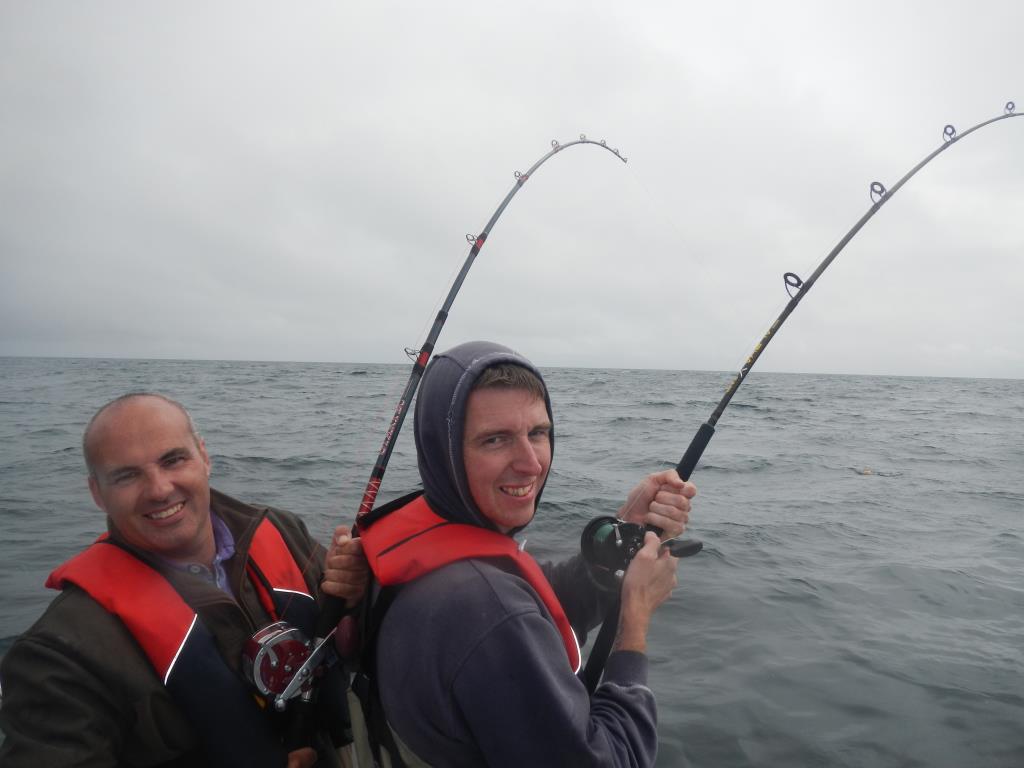
On a small boat it is prudent to fight one shark at a time. Certainly having a couple of feisty sharks on the deck of a small boat is a recipe for disaster and is neither helpful to anglers nor sharks. There tends to be plenty action to keep active and interested when the sharks are running. If you have three people on board you might have some chance of dealing with multiple hook ups. Better to err on the side of safety.
If you have not landed a shark on your small boat before you will learn one thing early on: a clear deck is important when landing a shark. A lively shark can do wreck on a cluttered deck. Between anglers jumping out of the way (some lads can be positively girlie!) and an angry shark on deck the space on a small boat seems to disappear quickly once the blue chap is landed! Care is certainly needed but you need to work confidently and with purpose. There is no room for tip toeing around.
Small boat shark fishing is a team effort. Getting the shark into the boat can be tough. Sometimes you are better to admit defeat and release bigger sharks at the side of the boat.
When it comes to the photos average sized fish tend to take better pictures than big fish. An average sized fish can be held easily enough whereas a big shark tends to bend too much to take a decent picture. I am not a fan of the group shot but it can be a solution to a big shark. Consider lying the fish on the deck and take the picture from inside the cuddy.
Make sure that you give the fish a sponge down before picture taking. Often the fish will have a “black dusting” from moving on the deck. It looks grubby in photos. It is prudent to sponge off any blood too.
Obviously the best pictures come on a sunny day. that blue hue is beautiful. If the day is dull don’t be afraid to use a fill in flash. It can highlight the tones of the shark very well.
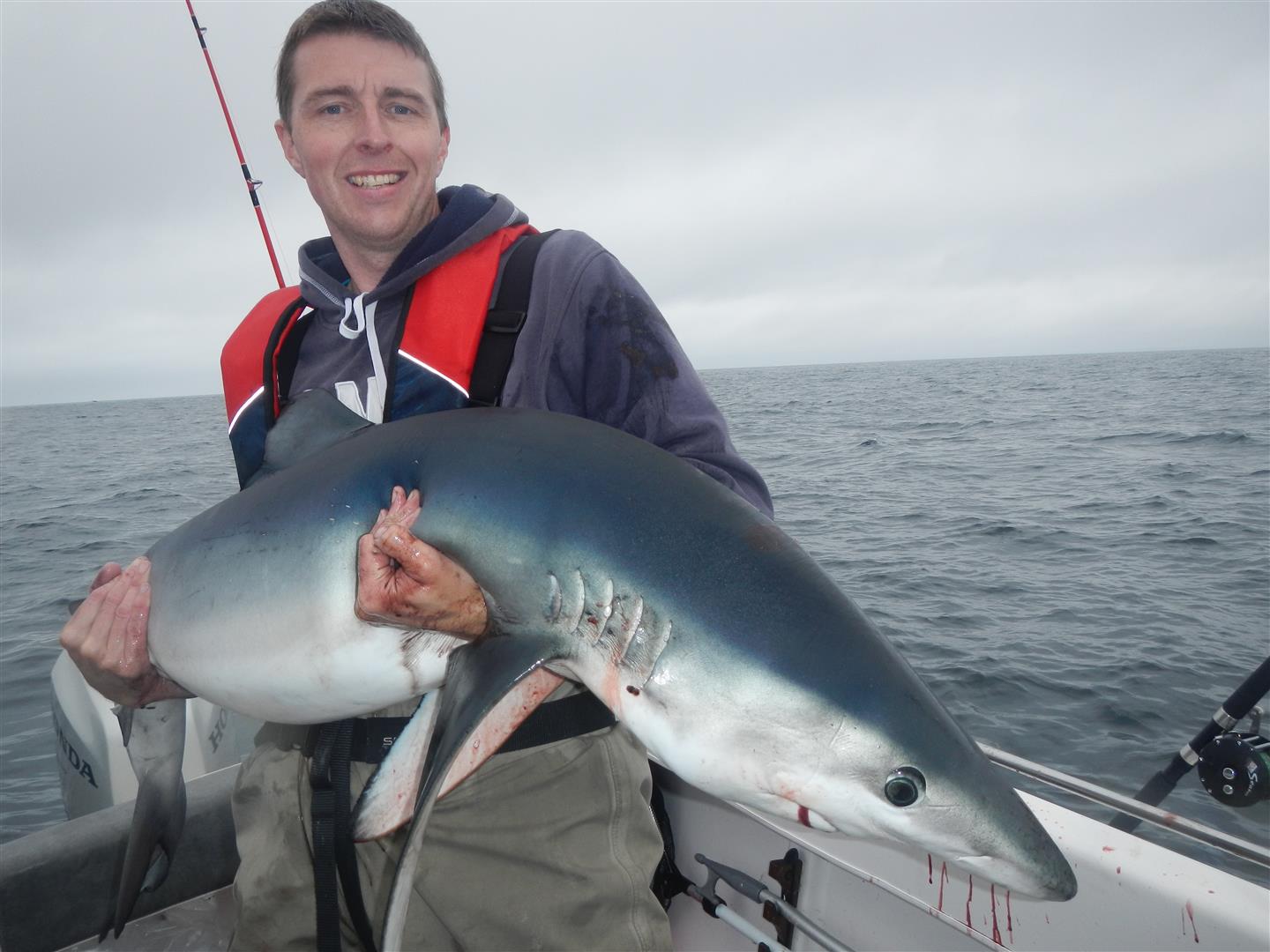
What are the factors that cause anglers to fail to catch sharks?
Of course you will have times where sharks are about and they are an easy catch without much effort but there are times where you will have to use every bit of experience you have in order to be successful. Why do people fail?
- Having poor chum or more importantly, not enough decent chum.
- Having poor traces – line, swivels, hooks, crimps, knots.
- Having inadequate rods, reel or line -breakage.
- Having mechanical issues – breaking rod eyes, poor drag on reels.
- Fighting too many sharks at the one time.
- Not being in the right location.
- Conditions not being right – Drift, water temperature, clarity.
- Sharing rods – too many anglers sharing rods and too few fish caught.
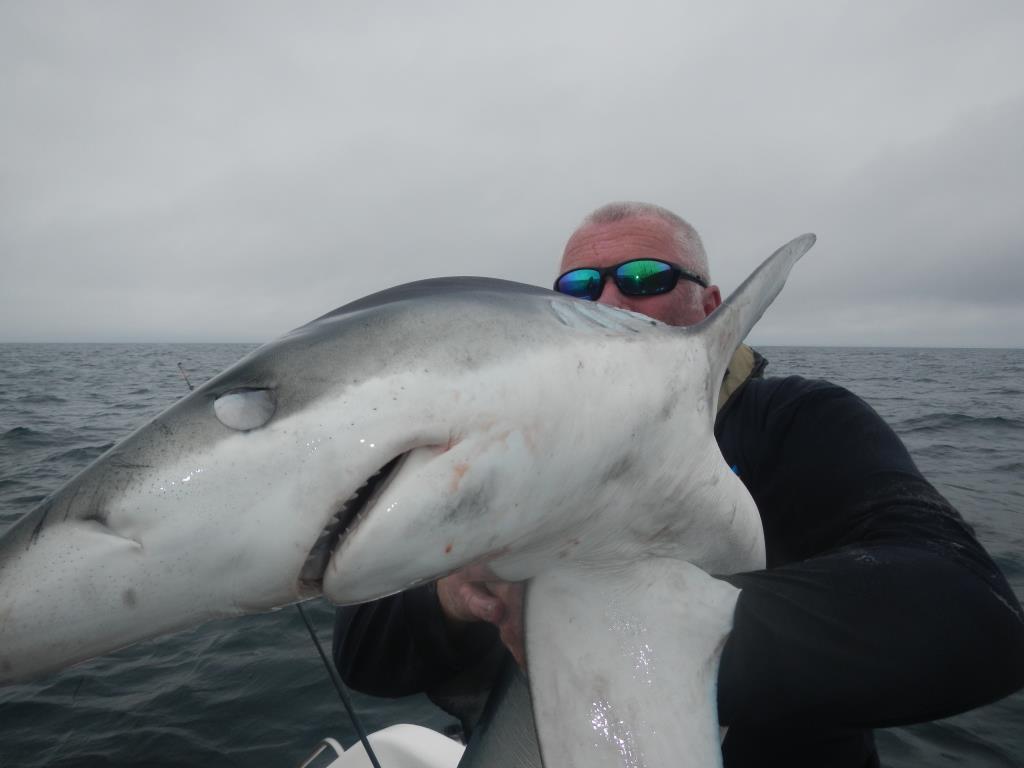
Try your best to eliminate the sources of error. It is your best hope of a successful hunt!
Get it right and you have the fishing experience that will last you in memories for years. Get it wrong and you will spend the time between trips with the inevitable “if onlys”.
Shark fishing takes effort, thought and planning. Such is the effort, you need to do as much as you can to ensure success. Not putting the effort is not an option given the work needed to be successful.
There is further shark reading here on TopFisher.eu dealing with the nitty gritties. It couldn’t be easier for you!
Try the search facility and type in “blue bible”.
